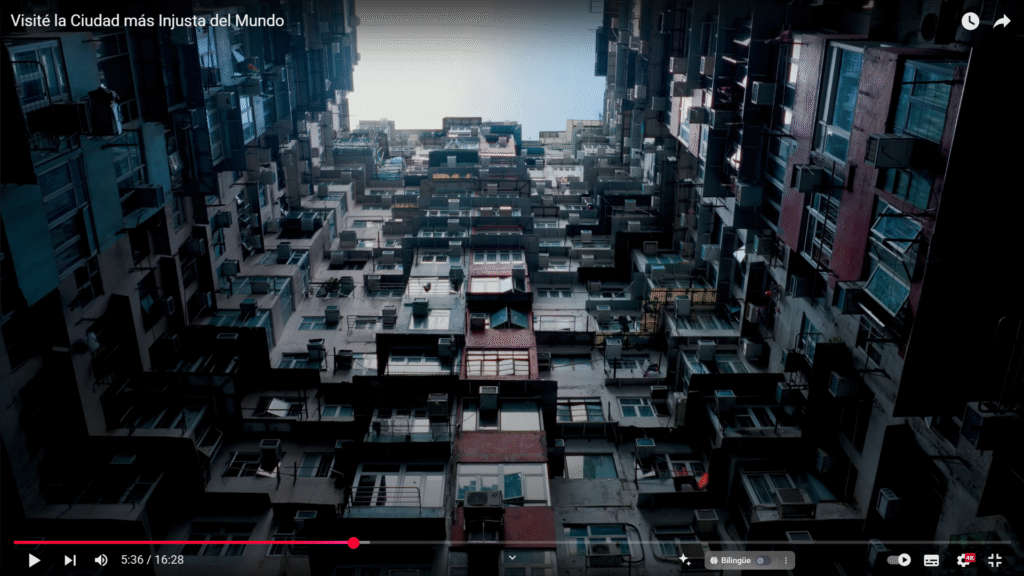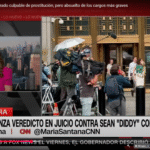A tax haven for a few, an urban hell for many: The other side of Hong Kong
Hong Kong is a city that defies all logic. From the air, it looks like a futuristic postcard: gleaming skyscrapers, clean streets, and a never-ending vitality. But as you descend into the subway, walk among its monster buildings, or speak to those who survive there, another truth emerges: this is possibly the most unjust city in the world .
Despite its reputation as a paradise for entrepreneurs, the reality for most of its residents is overwhelming. Minimal space at exorbitant prices, salaries that are insufficient to afford decent housing, marathon workdays, and a growing loss of civil liberties define the daily lives of millions of people. In this article, we explore the contrasts, causes, and consequences that make Hong Kong a place as fascinating as it is unequal.
What makes Hong Kong such a contradictory city?
Hong Kong, a former British colony and now a Special Administrative Region of China, has built its identity on a mix of extreme capitalism and a semi-independent legal system. This formula has brought massive investment, low tax burdens, and a vibrant economy… for some.
- Low or no taxes : Companies that export abroad pay 0% tax. Individuals pay a maximum of 15%.
- Polarized salaries : The average salary is around €2,200, but many immigrant workers barely make €800 a month.
- Extremely expensive housing : A 15 m² apartment can cost more than €1,500 a month to rent, which is more than the salaries of millions.
- Limited space : Only 30% of the territory is habitable. The rest is covered by mountains and nature reserves.
This combination has turned Hong Kong into a city where extreme wealth and poverty coexist just feet away.
Highlighted benefits of living in Hong Kong (if you have the money)
Despite its social complexity, Hong Kong offers several advantages that make it a magnet for entrepreneurs, wealthy expats, and high-profile professionals:
- Tax Advantages:
Minimum taxation allows high-income companies and individuals to retain a large portion of their profits. Foreign companies take advantage of this system to optimize their margins. - Efficient and affordable public transport.
Thanks to the Octopus card , traveling by metro or bus costs less than €1, even on long journeys. Uber and taxis are also accessible. - Multicultural Environment and Access to Western Services
Unlike mainland China, you can use Google, WhatsApp, and Instagram without restrictions in Hong Kong. This makes it an attractive international hub for living and working. - Advanced Infrastructure
From its metro network to its skyscrapers and luxury mountain neighborhoods, Hong Kong is equipped with world-class infrastructure. - Security and urban order
Although full of surveillance cameras, the crime rate is low and the city functions with almost robotic efficiency.
How does the working class survive in Hong Kong?
With a housing market demanding more than half the minimum wage just to rent a micro-home, many residents face extreme conditions. According to reports, one in 20 people live in spaces considered inhumane , such as “coffin boxes” or subdivided rooms without windows.
Some facts to understand the seriousness:
- Density : 150,000 people per square kilometer in some areas.
- Cost per square meter : Between €5,000 and €11,500.
- Restricted ownership : All land belongs to the government, and only 50- to 100-year leases are granted.
Property is not inherited; it is leased from the state. This prevents the hereditary accumulation of wealth in the form of land, but it encourages short-term speculation by large fortunes.
How is this urban model sustained?
The secret lies in state control of the land. Although Hong Kong has a semi-autonomous government, all land belongs to the state, which allows the city to finance itself through the sale of temporary concessions to companies and developers. Thus:
- The State does not need to collect high taxes.
- Large companies invest in building skyscrapers that they rent at exorbitant prices.
- Ordinary citizens pay sky-high rents for properties they cannot even inherit.
This model turns housing into an unattainable luxury for most, but a gold mine for those who can afford to play in that market.
Steps to understand if Hong Kong is for you
If you’re considering moving, starting a business, or investing in Hong Kong, here are some practical tips to help you assess whether this city is right for you:
- Evaluate your current income and career potential.
If you have a high salary or a company with exports, tax advantages can be very attractive. - Check the real-time real estate market.
Look for temporary housing options before committing to a permanent move. - Learn about working conditions in your sector.
Some industries offer competitive salaries, while others employ foreign labor with 12-hour workdays and only 14 days off per year. - Consider quality of life and personal space
If you need peace and quiet, green spaces, or privacy, Hong Kong can be too dense and overwhelming. - Evaluate the political environment.
Since the 2019 protests, Hong Kong has experienced increasing restrictions on freedom of expression. This could influence your decision if you work in media, activism, or technology.
Tips if you are visiting or living temporarily in Hong Kong
- Take advantage of the public transport system with the Octopus card . It’s efficient, cheap, and reaches almost every corner.
- Avoid overcrowded areas during rush hour , such as the central subway or the Monster Buildings .
- Visit the upscale neighborhoods if you’re looking for clean air and peace and quiet , but keep in mind that prices there skyrocket.
- Have a VPN ready if you cross into mainland China , where many apps are restricted.
- Don’t underestimate the weather : humidity and intense heat can make the urban experience even more stifling.
Living in Hong Kong can be a transformative experience, full of contrasts. It’s a vibrant city where wealth and power are on display at every corner, but also where millions of people struggle to maintain their dignity in extreme conditions. Understanding these nuances will help you decide if this unique metropolis fits your lifestyle or personal goals.
Explore wisely, analyze your possibilities, and remember: in a city where square meters are worth more than gold, true value lies in having a life you can enjoy.



